The influence of a mother on her children is beyond calculation- James Faust
Truer words have not been said.
As we celebrated Mother’s day yesterday, we decided to catch up with the daughters of two tremendously successful women who have left and continue to leave their mark in Africa.
On one end of the spectrum is Mosunmola Abudu, fondly referred to as Mo Abudu; she is the first African woman to own a Pan-Africa TV channel that airs in more than 49 countries in Africa as well as in the UK and the Caribbean. In 2015, she made the list of Forbes’ most successful women in Africa and in 2016, she made history yet again, with the production of Nigeria’s highest grossing film ever recorded, The Wedding Party.
On the other end, we have yet another remarkable woman whose giant strides have been made in the world of publishing; honored by the Association of professional women bankers as the most successful woman in publishing, she is the Editor-In-Chief and Chief Executive Officer of Nigeria’s foremost women’s lifestyle magazine, Genevieve. Her work is not only spoken of in the world of publishing but she continues to make great social impact through her foundation, Genevieve foundation which focuses on fund-raising for women struggling with breast cancer.
Although we celebrate their achievements; one thing these two women seem to have in common is their ability to have raised two equally powerful women. These women are trail blazers in their own rights who despite seemingly following in their mother’s footsteps are walking in different heels altogether.
I caught up with Sonia Irabor, the quiet yet, assertive writer whose interests vary from painting to surfing; Her love for reading comes through in her way with words and her ability to articulately communicate. A great advantage for her role as Editor of Genevieve Magazine. In this interview, she represents herself in a way that reads as one who is incredibly mature and fully comfortabe in their own skin. I find that this might perhaps be one of her greatest strengths.
Temidayo Abudu on the other hand, came across as having a zest for life; quite in line with her job as producer on Ebony Life TV. There were no airs to her and although she hinted at being as tough as nails, in the same breadth, there was something sweet about this young woman. In this interview, she is quick to mention that she and her mother are not as similar as one would think, she mentions that over time, they have grown to embrace their differences and it has made for a solid relationship and a unique leveraging of their strengths.
These millennial young women are a representation of a generation of women who are starting to truly embrace their unique personalities outside of the expectations of society. Their privileged background, a thing of which they don’t pretend to be unaware, has not encouraged them to conform. If anything, it brings their uniqueness furthermore to the forefront.
SONIA IRABOR
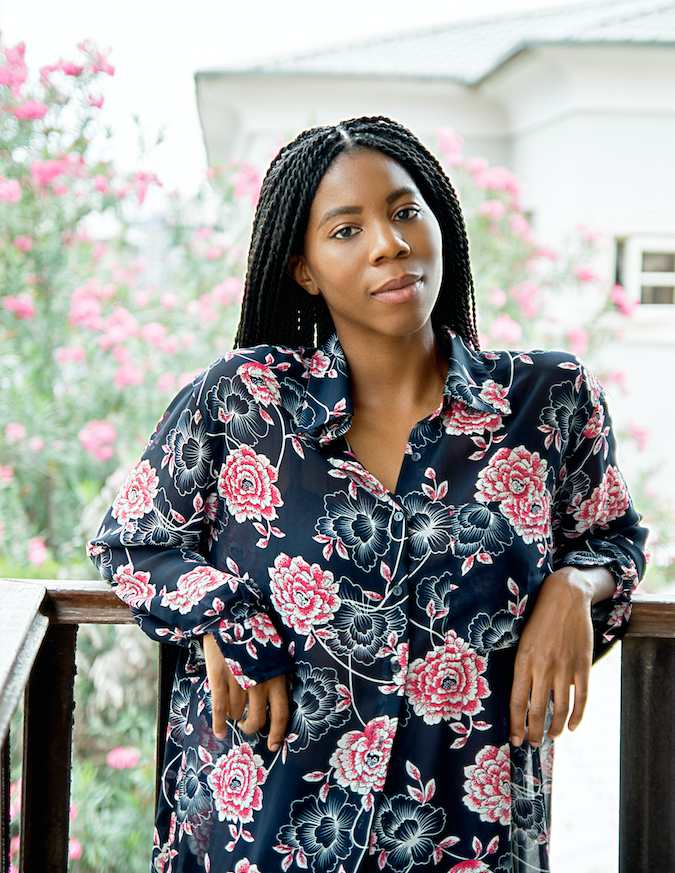
-
Describe your style when no one is looking
My style when no one’s looking, is pretty much the same as when people are looking: comfort first. I like to describe my style as “Nepa took light before I could decide what to wear so I just grabbed the closest thing to me and threw it on.”
Peculiar things about my childhood: I used to be a very serious Pokemon card dealer in primary school.
-
What are three things that most people would be surprised to know about you?
- I play the electric and acoustic ukulele
- I started to learn how to surf but my irrational fear of the ocean ensured that I only made it to a handful of lessons. I will return to it eventually.
- I co-wrote the Red TV comedy series, Inspector K, and did a bit of acting in the first season. The second season is coming out later this year.
-
You’ve always been quite staunch about staying out of the public eye. I see that you’ve dabbled in movies and are gradually coming out of your shell. What changed?
I like to occupy spaces I feel comfortable in. Also work can be very demanding and that takes up a great amount of time and leaves little energy for much else.
-
What inspired your decision to follow in your mother’s footsteps?
Before I became editor of the magazine, I was a PR professional, ghostwriter and actress in England, while contributing to Genevieve as a columnist and UK correspondent . And now, I am all those things as well as the editor of the magazine. The latter was not a specific decision or long-term goal of mine but I am as open and receptive to it, and excited for it, as I have been with my other passions.
What I appreciate is that my mother’s passion is hers, and it has not in any way been forced upon me. So I’m marching to my own beat but there is interestingly and excitingly that crossover on my journey.
5. Are you ever frightened that you have some big shoes to fill? (If yes, how do you cope? If not, how so?)
I once said that “my mother’s shoes are not mine to fill.” I still maintain that. I am instead carving my own path and working to build my own legacy at my pace. I am therefore not frightened by that prospect. I am excited about my personal journey, it’s looking good so far.
6. As Editor at Genevieve Magazine, there have been quite a few obvious changes. Did you meet any initial opposition?
I accepted the role under a few conditions: a lot of which revolved around being free to rebuild and begin to re-introduce the magazine to the public. The process itself – as a business in Nigeria – is the real challenge.
7. Has your mother in any way influenced your attitude to work and business? How?
Absolutely. I grew up watching how she worked. I have learnt from her ethics, her unrelenting spirit and – perhaps most importantly – her mistakes.
8. How do you hope to remain sustainable in an era where everyone seems to be going digital?
We’re going and growing with our audience by becoming digital ourselves. In exploring that space, we’ve begun to find our voice very clearly and our online presence is growing rapidly as a result. We introduced our e-magazine – the digital copy of the print – in December and that’s really beginning to hit its stride. The digital platform allows us to do so much more and bring an even wider spectrum of content to our readers worldwide. It is an exciting digital journey we are on.
9. What have been your top achievements since joining the magazine?
Hmmm…. I think the top of which is starting and committing to a teen column in the magazine aged 13. Followed by the time I booked my first international interview with Grammy-nominated rapper, Wale, aged 19. There are so many little moments of pride and joy that I think back to on my 15-year journey with Genevieve Magazine.
10. What is your advice for anyone looking to follow in their parents’ footsteps?
As with any career journey, it is a bumpy road. There will be moments of doubt brought on by your inner-critic and external forces, do not be discouraged. Let your self-belief kick into overdrive and power through.
Do not apologise for who you are, but do not become complacent either.
Life comes at you fast. Keep your head down, do the work and let that speak on your behalf.
11. What would you say is the key to empowerment for all women?
Understanding. We need to strive to understand that every woman is different and we must not punish each other for this. There is no such thing as a good or right way to be a woman, we must start from a point of openness to understand, appreciate and celebrate our individuality. I don’t know if that is the key but it certainly helps, I believe.
12. People aren’t always the nicest on this side of Africa; discrediting your hard work and accrediting it all to privilege. How have you coped?
I acknowledge and accept that there is privilege in my life; it would be ignorant of me to deny. However, I also acknowledge and celebrate my individual experience, talents and abilities.
My CV is extensive proof of that. I have built other endeavours from scratch, worked, learned, failed numerous times and succeeded on my own. So I don’t sweat it. At the end of the day, the work I do, with Genevieve Magazine as well as my other pursuits, will hopefully speak louder than any doubt or dismissal.
13. Where’s Sonia looking to be in the next five years?
I am hoping to still be alive and living truthfully; growing and evolving. On a more romantic level, I imagine I’d have written and directed my second film, which will be accepted into the Sundance Film Festival and maybe I’ll finally get to tell my hysterical anecdotes on Conan, Kimmel or some such late night show. But it’s ultimately out of my hands, so I abide.
TEMIDAYO ABUDU
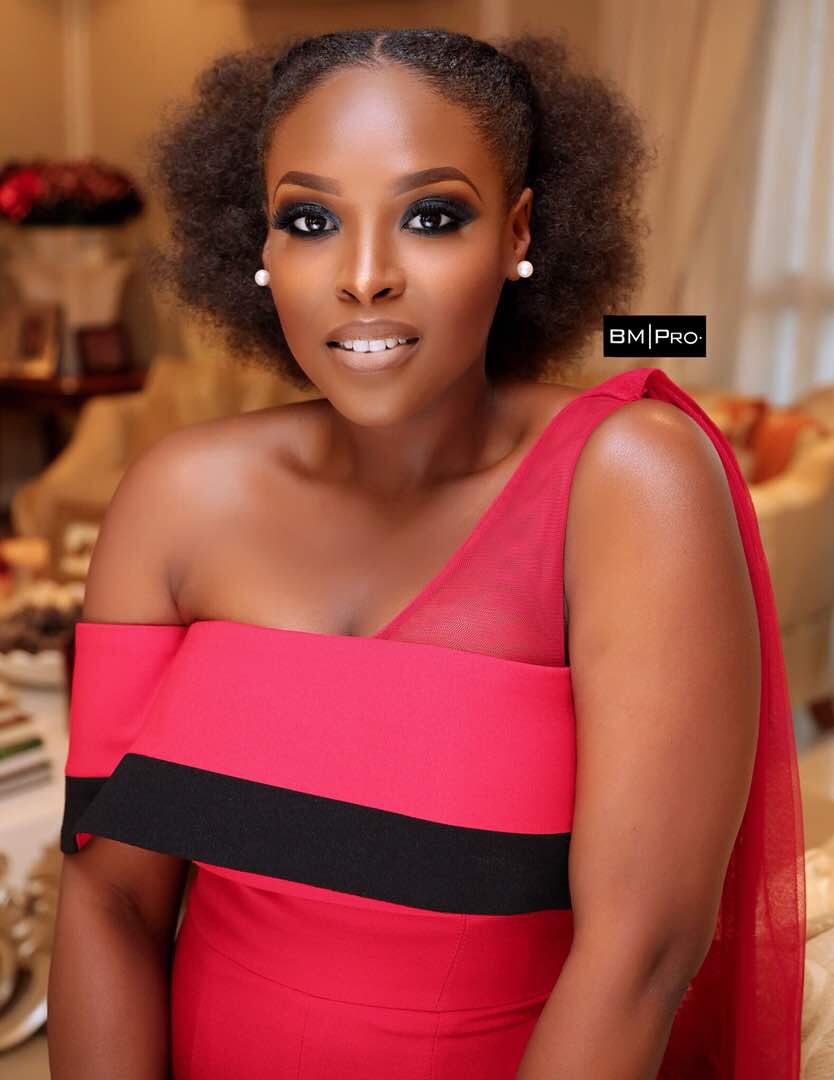
1. Tell me a little about yourself (what fascinates you? what are your hobbies? what’s your style when no one’s looking? peculiar things about your childhood etc)
2. What are three things that most people would be surprised to know about you?
- I’m a cry baby, I could cry at the drop of a hat if I feel attacked.
- I love reality TV. The ghetto ratchet types are my favourites. It’s really about the people!
- Usually hate wearing earrings. Something a lot of women in Nigeria always question.
3. You launched a healthy lifestyle company. Tell me a bit about that.
4. You studied Marketing and Management in London. Did you think you would ultimately still end up in film?
5. What inspired your decision to follow in your mother’s footsteps?
6. Are you ever frightened that you have some big shoes to fill? (If yes, how do you cope? If not, how so?)
Well I don’t think I’m frightened, I’m more scared to be in my mother’s shadow. I very much want to be recognised for my own contributions and achievements, not for being Mo Abudu’s daughter.
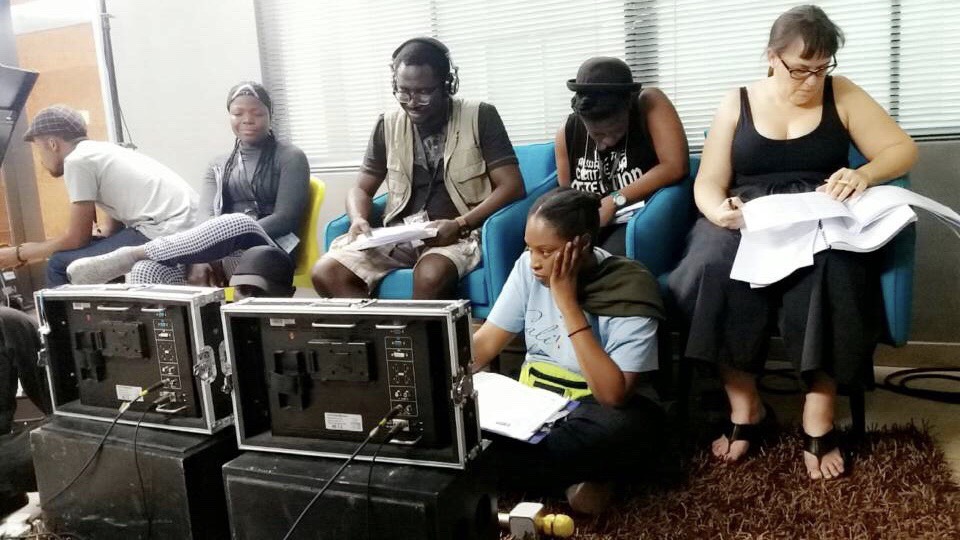
7. Film production at Ebony Life tv, your mother’s company, means you have to work alongside other producers. What’s the nature of your relationship with them? (Is there ever an underlying weirdness about your mom being the boss? How do you handle it?)
8. You’ve garnered quite the clout for yourself and rightfully so. What would you say has contributed to your success?
9. Has your mother in any way influenced your attitude to work and business? How?
And nothing is impossible, I have so many ideas, I know I can do them. Just not at the same time.
10. Do you hope to carry the torch even after she’s retired?
11. What is your vision for Film production in Africa?
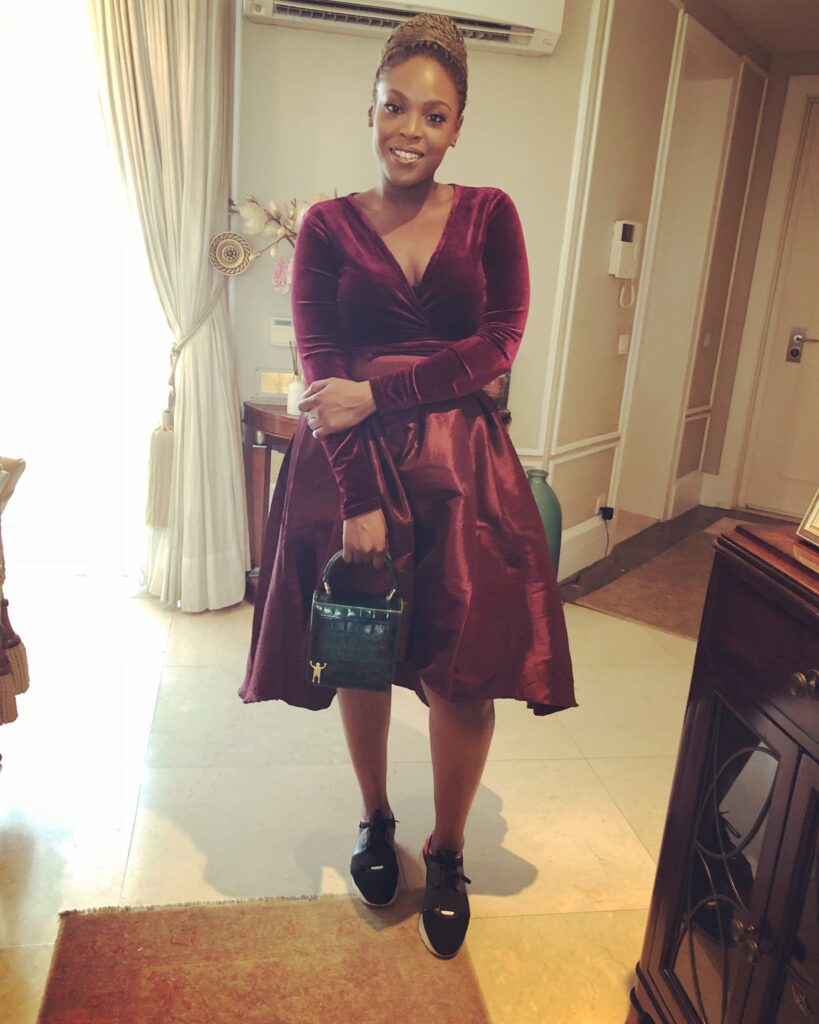
12. What are some of the projects you’ve undertaken for Ebony Life TV and what would you say your top achievements have been?
I’ve just recently finished Castle & Castle, Nigeria’s first legal drama which I produced with Isioma Osaje. That was the most challenging I’ve done so far. My baby, ON THE REAL is one of my biggest achievements. I love the show, the characters, the team behind it. Also co writing my first TV series which will be out later this year.
13. What is your advice for any one looking to following in their parents’ foot steps?
14. What would you say is the key to empowerment for all women?
Women. If we come together, respect each other, educate, enlighten, pray, we can do anything.
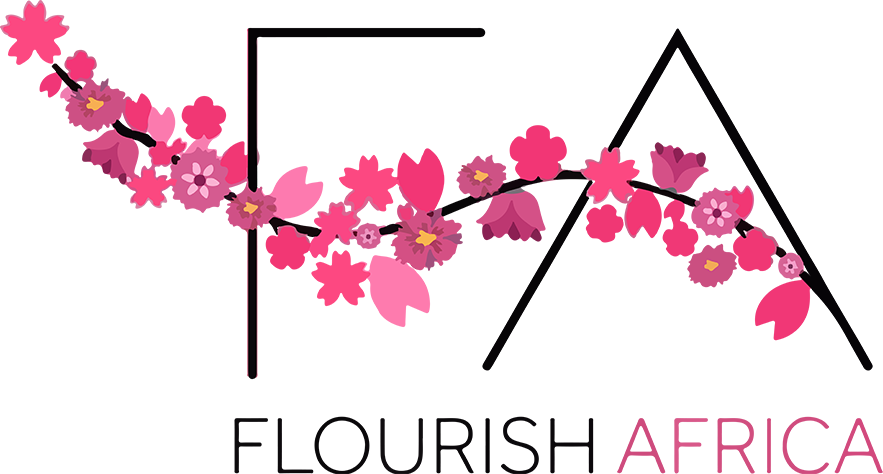
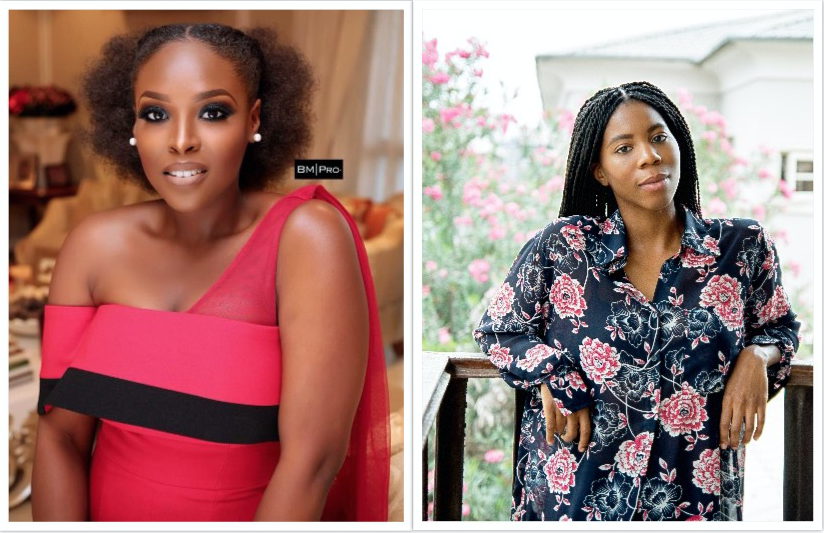

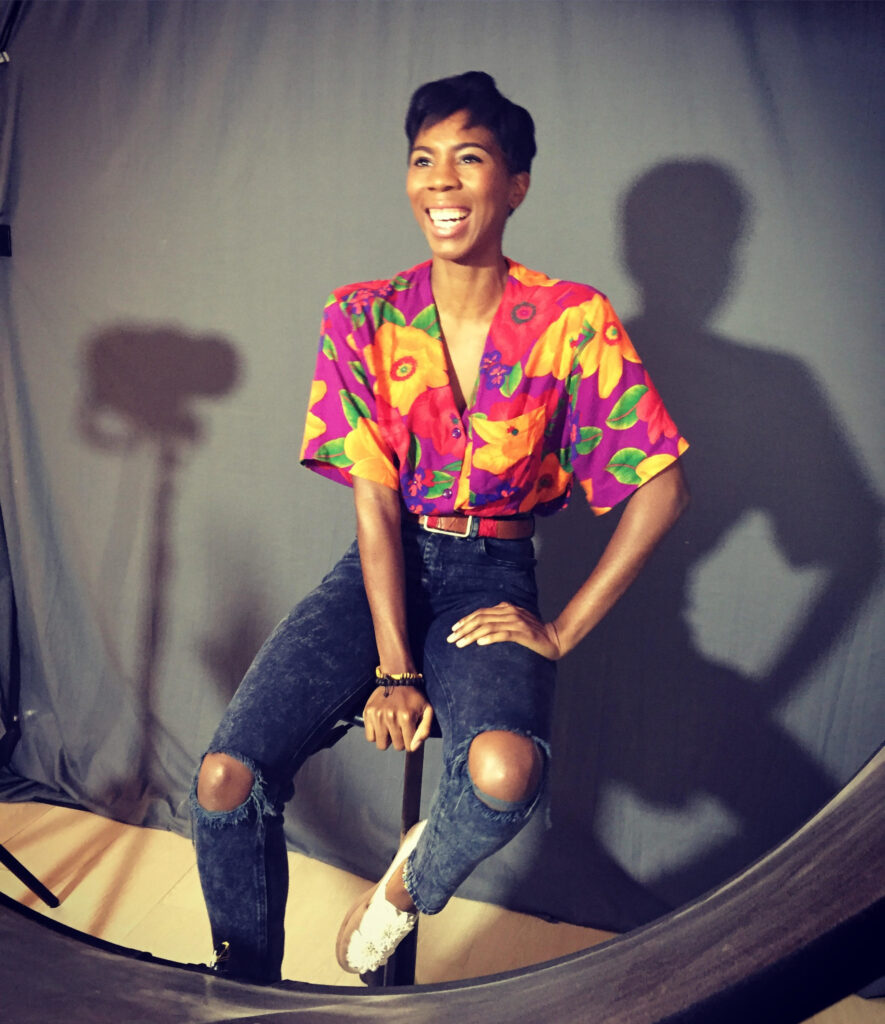

Leave a Reply